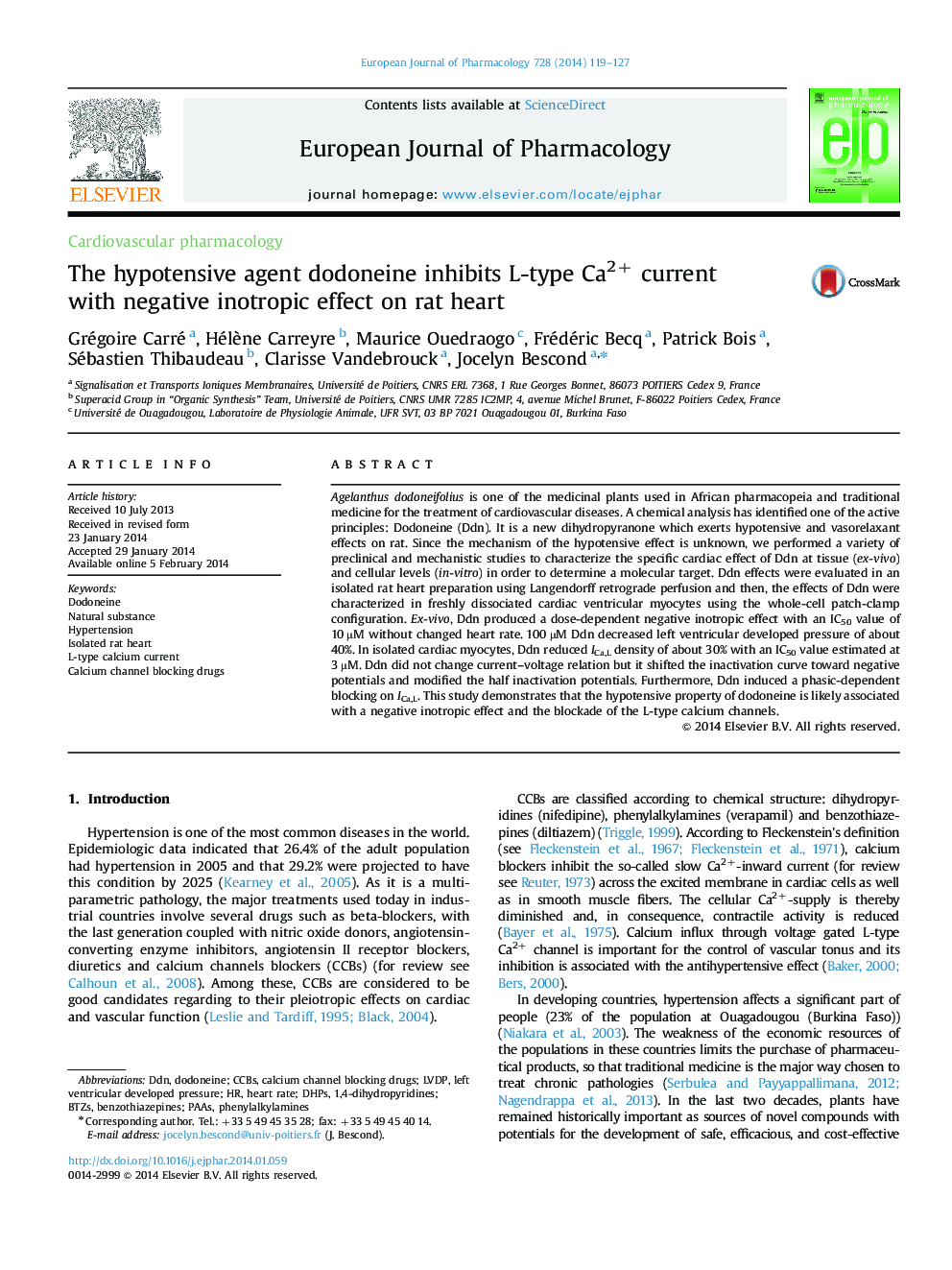| Article ID | Journal | Published Year | Pages | File Type |
|---|---|---|---|---|
| 2531848 | European Journal of Pharmacology | 2014 | 9 Pages |
Agelanthus dodoneifolius is one of the medicinal plants used in African pharmacopeia and traditional medicine for the treatment of cardiovascular diseases. A chemical analysis has identified one of the active principles: Dodoneine (Ddn). It is a new dihydropyranone which exerts hypotensive and vasorelaxant effects on rat. Since the mechanism of the hypotensive effect is unknown, we performed a variety of preclinical and mechanistic studies to characterize the specific cardiac effect of Ddn at tissue (ex-vivo) and cellular levels (in-vitro) in order to determine a molecular target. Ddn effects were evaluated in an isolated rat heart preparation using Langendorff retrograde perfusion and then, the effects of Ddn were characterized in freshly dissociated cardiac ventricular myocytes using the whole-cell patch-clamp configuration. Ex-vivo, Ddn produced a dose-dependent negative inotropic effect with an IC50 value of 10 µM without changed heart rate. 100 µM Ddn decreased left ventricular developed pressure of about 40%. In isolated cardiac myocytes, Ddn reduced ICa,L density of about 30% with an IC50 value estimated at 3 µM. Ddn did not change current–voltage relation but it shifted the inactivation curve toward negative potentials and modified the half inactivation potentials. Furthermore, Ddn induced a phasic-dependent blocking on ICa,L. This study demonstrates that the hypotensive property of dodoneine is likely associated with a negative inotropic effect and the blockade of the L-type calcium channels.
Graphical abstractFigure optionsDownload full-size imageDownload high-quality image (123 K)Download as PowerPoint slide
